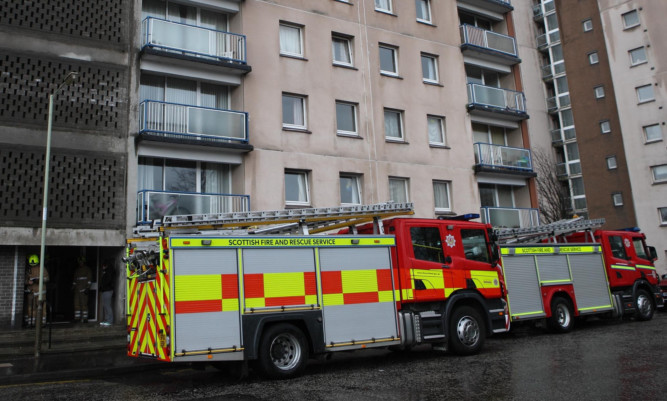Councils across Tayside and Fife have shelled out tens of thousands of pounds to house tenants in emergency accommodation.
Figures obtained by The Courier show hotels are forcing councils to pay through the nose for accommodation, with taxpayers having to foot the bill for a £636 two-day stay in Perth.
Residents are normally decanted for repairs to their homes to take place and are placed in alternative accommodation for just a few days.
In Perth and Kinross one resident was even placed in temporary accommodation for 134 days after witnessing the death of their neighbour in 2011.
They were placed in one of the local authority’s temporary accommodation units and so there was no extra cost for their rent.
However, when rooms are booked for tenants in hotels it can cost councils hundreds, if not thousands of pounds.
That same year another tenant spent 29 days in a Perth hotel at a cost of £2,030 to the taxpayer while the council also had to foot a £636 bill for a two-day stay in another hotel.
And one Perth resident has spent 738 days living with a friend after being forced out of their flat because of a leak from upstairs.
Dundee City Council spent over £73,000 on alternative lodgings over the past four years, although costs have fallen dramatically over the past two years.
The longest anyone has been kept from their home was in 2011/12, when one resident spent 87 days away from their home leading to a bill of more than £4,000.
Angus and Fife councils have decanted very few of their residents over the past four years.
Since 2012, Angus Council has only had to find alternative accommodation for four residents.
Fife Council has decanted 50 residents since 2011, at a cost of more than £18,000,
Dundee City Council depute housing convener councillor Kevin Cordell said: “The main reasons for decanting tenants are modernisation or major repair to homes.
“Up until 2014/15, housing’s capital investment programme targeted resources to bring all of the council houses up to the Scottish Housing Quality Standard. This included installing new central heating systems, kitchens and bathrooms.
“The content of the capital investment programme is now changing with emphasis on installing energy efficiency measures such as external wall insulation and replacing roofs. This work does not involve decanting.”
A spokeswoman for Perth and Kinross Council said they could not comment on individual cases.
But she added: “There can be a range of reasons why tenants might be decanted from their homes. The most common are for repairs and refurbishment, often following an emergency such as a fire or flood.
“For example in 2013-14 we decanted a number of our tenants due to an electrical failure and smoke damage at Pomarium Flats on Christmas Day 2013. More recently we provided alternative accommodation for our tenants whose properties were damaged following the flooding in Alyth (not included in figures). “Both are examples of the kinds of incidents which can result in tenants being decanted over which the council has no control.
“We always make sure that the alternative accommodation fully meets the needs of our tenants and we try wherever possible to minimise the time tenants are decanted from their homes. However as would reasonably be expected this is dependent on individual circumstances, and in very exceptional circumstances, the decant may cover a significant time.”
Eben Wilson, director of TaxpayerScotland, said: “The differences between councils tell an important story.
“Local taxpayers are having their money wasted by some councils who are not moving fast enough on their repairs and renewal projects.
“Hotel accommodation should always be a last resort it’s simply not fair on taxpaying householders to have to support the high costs involved.
“If part of keeping local housing to a quality standard involves moving tenants, there is a duty on councils to plan and execute these moves efficiently at least cost. Every penny matters when money is so tight”.
